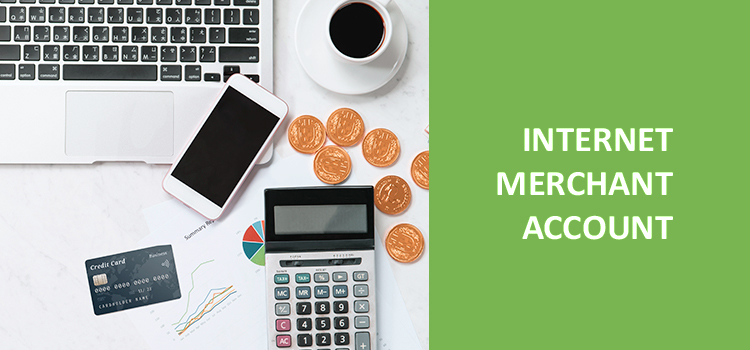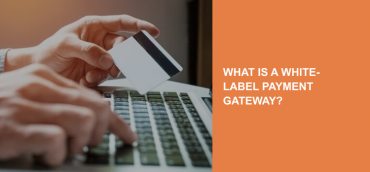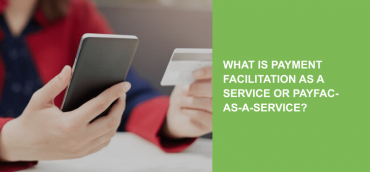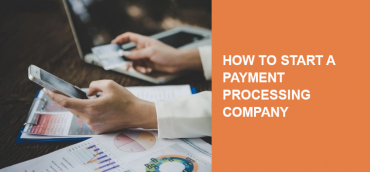In the ocean of e-commerce, an Internet merchant account is a bridge connecting your bank account and your clients’ money. Thus, it can hardly be underestimated. Let’s find out what an internet merchant account is, how it works, and what tips to consider when opening one.
What is an internet merchant account?
The internet merchant account is a type of bank account. It acts as a middleman between your clients’ money and your business bank account. Once customers make a purchase from you via credit/debit card, all the funds are deposited to the internet merchant account. Then, all the money moves to your business bank account. The latter is entirely separated from your merchant account.
You might think: wouldn’t it be easier to accept credit and debit card payments directly to my business bank account? Unfortunately, credit card processing doesn’t function that way.
Paying in cash involves you and your customers only. The digital transaction, on the contrary, also involves the issuing bank and the acquiring bank. The issuing bank is the institution that grants credit and debit cards to customers. It is also responsible for collecting payments from customers. The acquiring bank, in turn, requests and collects payments from the issuing bank and then transfers funds to the merchants.
Now you see how complicated the payment process is; the acquiring bank requests the funds from the issuing bank, which verifies that the client has enough funds available on his card. Then, the acquiring bank transfers to the merchant account. The latter, in its essence, holds funds until the payout to the merchant’s business bank account. Can you imagine that the same process happens every time you order pepperoni pizza online?
What’s A Payment Gateway?
We’ve clarified what a merchant account is, so let’s proceed to payment gateways. While a merchant account holds funds before they are transferred to the business bank account, a payment gateway connects your e-store to your payment processor.
Payment gateway makes online transactions possible and secure. Once integrated with your online store, a payment gateway routes information about the transaction to your acquiring bank, which accomplishes the functions mentioned in a previous paragraph. The gateway, basing on your acquirer’s response, then sends an approval or decline message back to you. At Ikajo, we help business owners to open an internet merchant account and get a payment gateway.
Electronic aggregators VS Payment system providers
Now when you know what internet merchant account and payment gateway are, you face a new challenge.
How to get started?
First, you have to choose between two different payment options: payment system providers ( the providers of merchants accounts) and electronic aggregators, like PayPal, Square. Both institutions help merchants to accept payments online. However, there are some core differences you don’t want to miss.
What is the difference between electronic aggregators and payment system providers?
Electronic aggregators add new merchants to a giant collective merchant account. Payment service providers, on the contrary, open merchant accounts for each merchant individually. It takes more time and effort from a merchant.
Another difference between electronic aggregators and payment service providers is a level or merchant’s freedom.
Let’s make it easier by comparing PayPal (electronic aggregator) and Ikajo International (direct processor). If a merchant uses PayPal to accept payments, his clients can only pay via PayPal. No other payment methods included. He can’t accept debit/credit card payments, e-Wallets, cryptocurrency, local credit cards, wire transfers, e.g., Just PayPal payments. That’s it. If using Ikajo International services, the client can choose his preferable payment methods himself. He can also select target countries, payouts frequency, add a recurring billing and credit card authorization hold. Finally, he can also add PayPal as a payment method.
To sum up, electronic aggregators are easy to join. It takes about two days to start accepting payments with PayPal, Square, X. With direct processors; it takes more time and effort (usually up to two months). However, having your merchant account provides one with a wide range of benefits and features.
PCI compliance & Internet merchant accounts
PCI compliance is a set of safety practices established by a council (the Payment Card Industry, or PCI). It was created by the major credit card networks to safeguard online transactions. These standards, which regulate all businesses that accept credit/debit cards, are meant to secure the transmission of cardholder data.
When choosing a payment processor, it is crucial to make sure that it offers features such as PCI compliant processing hardware and software. It is a total must to not get in trouble with the law.
How much does an internet merchant account cost?
There are different payment models provided by payment processors:
- Flat-Rate Pricing. That is the most predictable and stable pricing model. You pay a fixed rate per each transaction, which allows forecasting the processing costs. Ikajo International, PayPal, Square, and Stripe use a flat-rate pricing model. That is the best choice for merchants with small and middle sales volumes. Check out whether free credit card processing really exists.
- Interchange-Plus Pricing. That pricing model is also known as cost-plus pricing. Such a payment scheme includes a credit card processing rate set by the card brand (Visa, MasterCard, Discover, e.g.) and a markup set by a PSP. It is a beneficial choice for web merchants with high sales volumes.
- Membership Pricing. That is the pricing model offered by subscription-based payment processors. According to this pricing model, you pay a single monthly subscription fee, no matter of your sales volume. It also includes a flat fee of between $0.08 and $0.15 per transaction. The membership pricing scheme is recommended for businesses with high sales volumes only.
Key features to look for in an online merchant account
Let’s list down the key elements that should be included in your internet merchant account package:
- Included gateway;
- Multiple payment methods;
- Global payment support;
- Recurring billing;
- Developer tools;
- 24/7 customer service.
List of documents to open an internet merchant account
Once you decide to open the merchant account, you need to fill down an application with an attached list of documents. The latter varies according to your business type and a PSP choice. However, some traditional documents are always required. Familiarize yourself with the list of documents to open a merchant account:
- Certificate of Incorporation;
- Certificate of incumbency;
- Local documents as per company jurisdiction which displays company directors and owners;
- Utility bill/Bank statement/Rental agreement under corporate names proving company location;
- Valid ID copies for all company directors and owners.
Website requirements to open a merchant account
To comply with all the Visa and MasterCard demands, you need to adjust your website/e-store. Strengthening the checkout safety in line with creating high-quality products and delivery descriptions, stimulates your success. Creating the Terms & Condition and a Privacy Policy page is also a must.
Summary
Understanding payment processing is not an easy task. However, to succeed in e-commerce, you need to have a basic idea of the latter. Don’t hesitate to ask questions and leave comments. From opening a merchant account to safeguarding your transactions to answering payment-related questions, we are always here for you.








